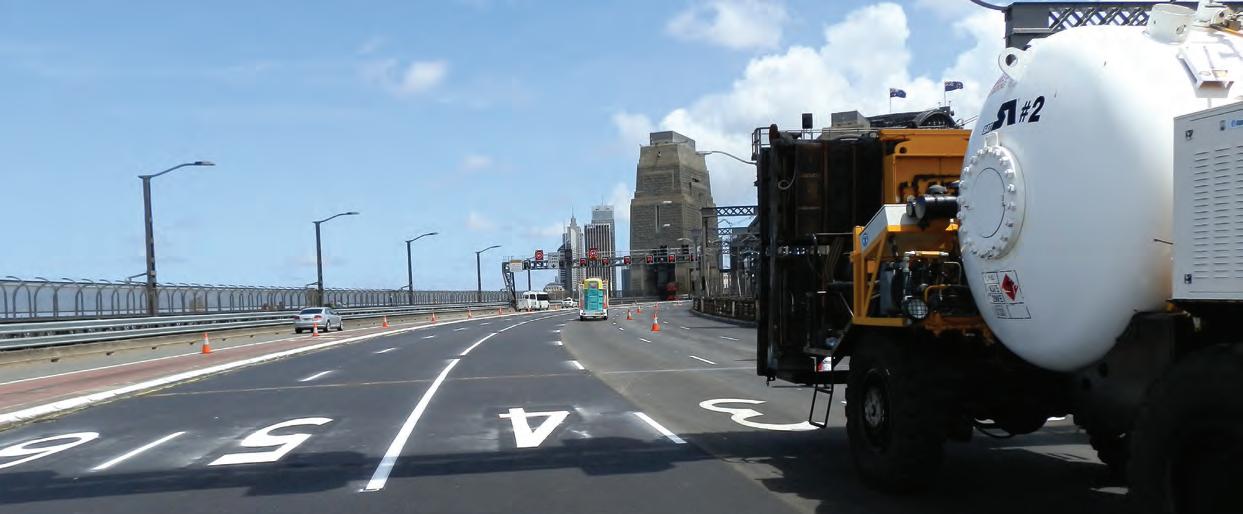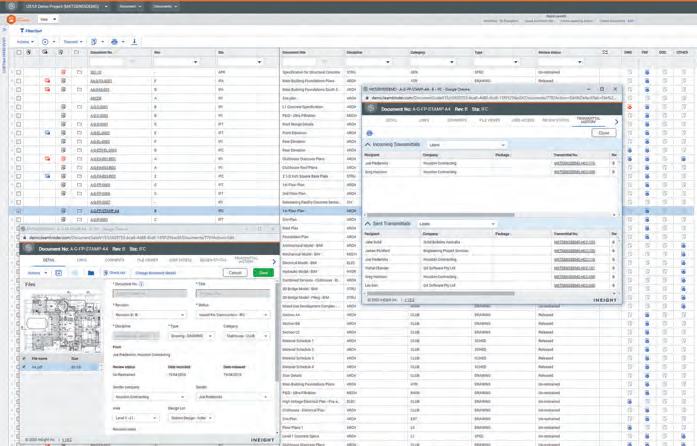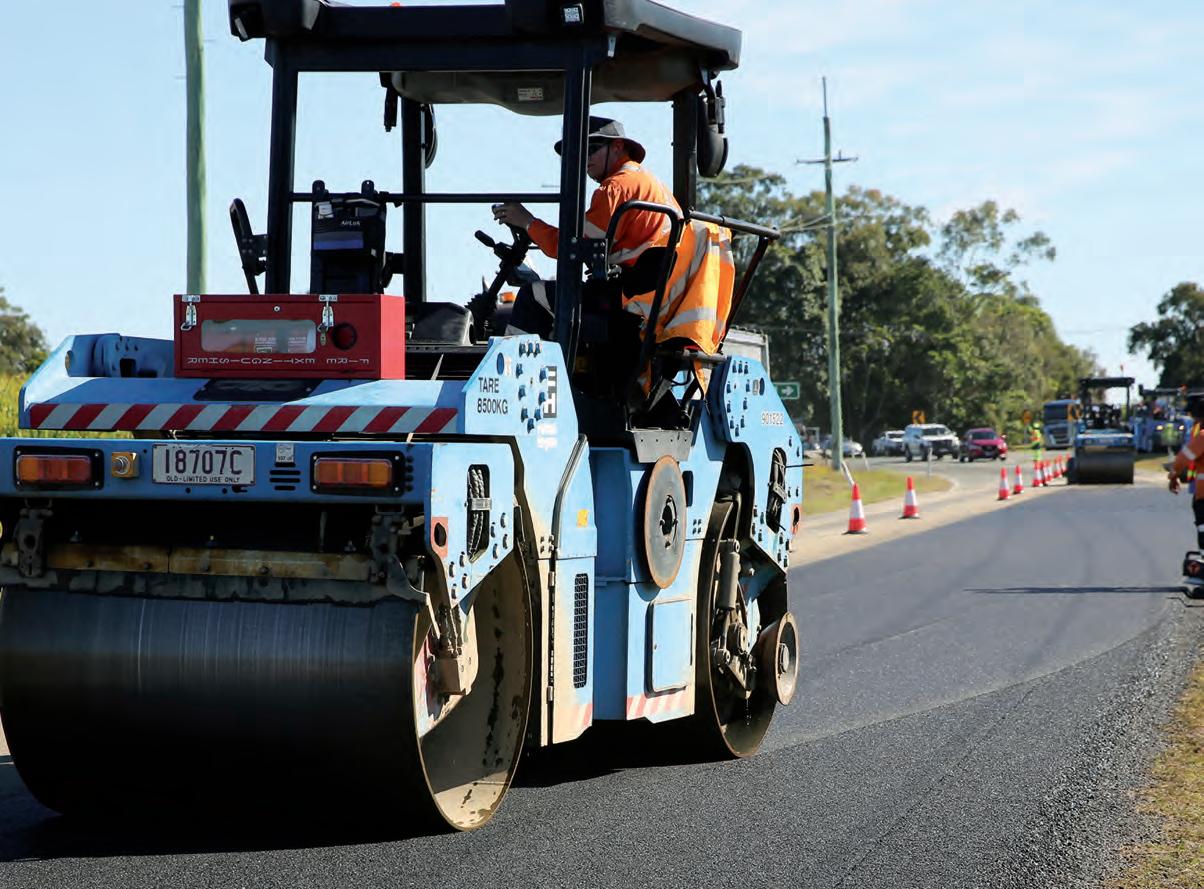EVENTS
TRANSPORT TECHNOLOGY
IN QUEENSLAND THE 2020 QUEENSLAND TRANSPORT AND INFRASTRUCTURE CONFERENCE WILL PRESENT A HOLISTIC UPDATE OF INFRASTRUCTURE ACROSS THE GROWING STATE, EXPLORING REGIONAL PROJECTS, FUTURE TECHNOLOGIES AND MAJOR PROJECTS.
Q
ueensland is home to the world’s longest electric superhighway in a single state. The highway allows Queenslanders and tourists to travel from Coolangatta to Cairns or from Brisbane to Toowoomba in a low- or zero-emissions vehicle with fast charging points along the way. It’s unique projects like this that have inspired the line-up for the 2020 Queensland Transport and Infrastructure Conference. Held at the Brisbane Convention Centre from 22 to 23 July, the conference will present an array of new and long-standing infrastructure updates for the construction industry. With an agenda featuring representatives from Cross River Rail, Brisbane Metro and the Adani Carmichael Rail project, the conference will not only focus on major projects, but also new developments in the pipeline. Conference producer S. Rajasekaran says this year the Queensland transport budget provided some unique topics for the conference to explore. “There has been a huge jump in investment for regional road and transport projects. The budget shows nearly $15 billion of the total $23 billion will be spent outside of Brisbane and Ipswich city centres. Regional investment is what we want to highlight at the conference,” Ms. Rajasekaran says. Some regional projects featured in presentations will include the Cairns shipping development project, the priority port of Gladstone and the Central
56
ROADS APRIL 2020
Queensland inland port. “Each of these projects is set to change the game across regional Queensland. Given the huge area Queensland covers, it would not be a good reflection to just concentrate on Brisbane projects as regional development is important to the industry as well,” Ms. Rajasekaran says. Electric vehicle infrastructure will also be covered in presentations at the conference. The Queensland Government updated its Electric Vehicle Strategy in late 2017. It aims to prepare Queensland for the uptake of electric vehicles by providing initiatives to increase awareness and experience, electric vehicle infrastructure and assist with costs. “With major automotive companies predicting the future will be electric, we have included this as a topic as it will become pertinent in terms of where technological infrastructure is heading,” Ms. Rajasekaran says. She says there is a lot of discussion about electric vehicles but not as much about the infrastructure needed to run them. For this reason, the conference will feature presentations surrounding the required infrastructure for Queensland to accommodate more electric vehicles. Chargefox will present at the conference on Queensland’s electric vehicle charging network and give a holistic overview of the future of electric vehicle infrastructure from a technology perspective. The future of mobility, which Ms. Rajasekaran says is an emerging trend, will also be discussed in a conference panel. “The panel will bring together experts from the on-demand transport, e-scooter
and drone technologies to talk about what infrastructure may be needed in the future to accommodate these transport models,” she says. “These technologies are all expected to change the way we build infrastructure, so they were really important for us to include on the agenda.” Cycling infrastructure will be another topic featured at the conference following the inclusion of budget provisions to build cycle paths in metropolitan and regional Queensland. Also released in 2017, the Queensland Cycling Strategy 2017-2027 aims to set the direction to encourage more cycling, more often throughout Queensland. The strategy looks at ways to build and connect infrastructure to be more cyclefriendly and encourage cycling as a daily activity. “The state is really pushing forward in terms of creating cycling infrastructure, and we are excited to feature this on the agenda,” Ms. Rajasekaran says. A wide range of topics featured at the 2020 conference is expected to attract leaders from across the infrastructure industry. As well as contractors, project managers and workers from within the construction and civil industry, anyone working within the technology sector can expect to benefit from the conference. “Whether it be about technology or major projects, there will be the latest updates from industry decision-makers that delegates won’t be able to find anywhere else,” Ms. Rajasekaran says.





















